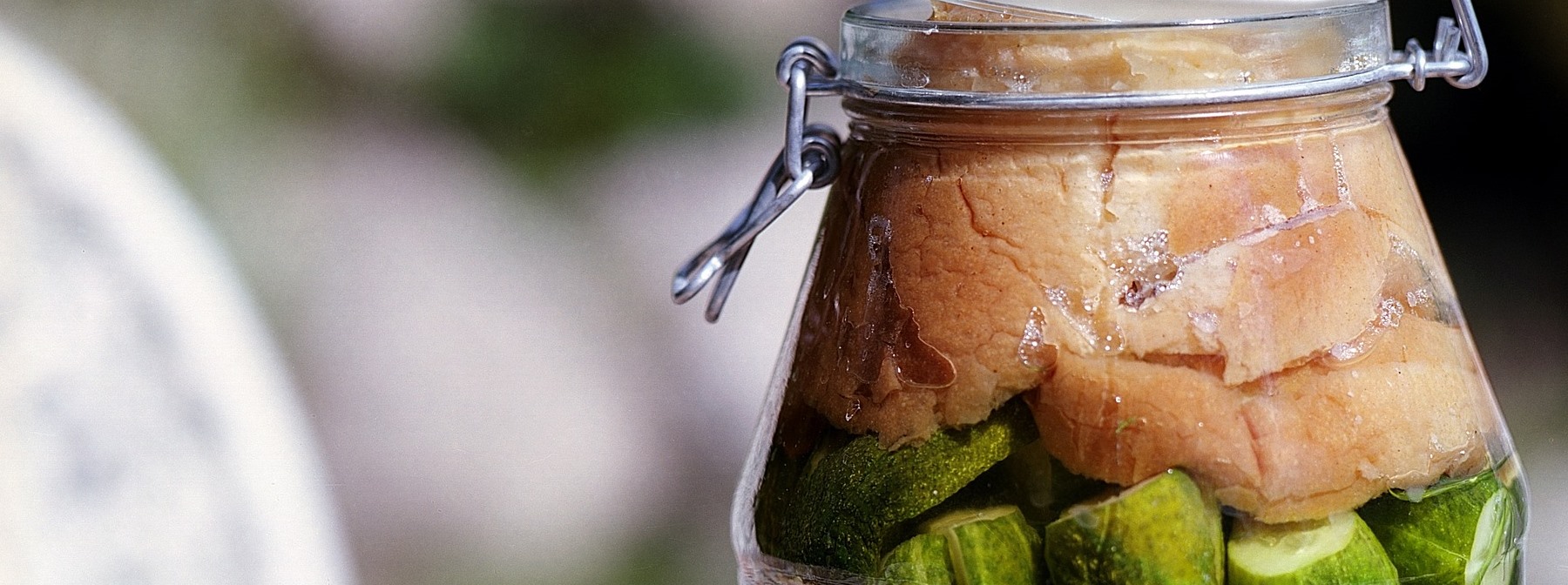
Inspired by the Mortier Pilon fermentation and canning range, we furrowed into the fantastic field of food fermentation.
What is food fermentation?
Fermentation is the deliberate soaking of vegetables in either their own juices or salt water. This added liquid is conducive to the formation of bacteria and ‘lacto-fermentation’ is the most common variant of this process. ‘Lacto-‘ refers to lactic acid, which is produced consequent on lactobacillus bacteria growing in food and eating its sugars. Lactic acid is responsible for the sour and tart tastes of fermented foods.

Why eat fermented foods?
As pH levels in food decrease (become more acidic), two things can happen. First, ‘bad’ bacteria struggle to survive while the ‘friendly’ lactobacillus bacteria continue to grow. Increased lactobacilli can result in improved gut feeling, as well as, some believe, improvements in memory and mood.
Secondly, if better gut function wasn’t enough, the flavour of foods begin to change. From sweet and sour sauerkraut to sometimes crazy-hot Korean kimchi – both, in essence, cabbage! – to crisp and carbonated Kombucha tea, food and drink can take on a new life when fermented.
How do I ferment food?
Fermentation is experimentation and the transparent, part-glass Mortier Pilon range adds to this feeling of labatory-like invention. Zymology is the science of fermentation; zythology of beer and beer-brewing. Louis Pasteur (the father of pasteurised milk) was, arguably, the first zymologist. In 1857, he identified yeast as crucial in the breakdown of food sugars and described the process as ‘respiration without air’. Essentially, the key to successfully fermenting foods is to allow your ingredients to stew with minimal exposure to air. In a world where everything is instant, the return to investing time into food that fermentation facilitates is inspiring. Further, far from factory-processed, fermented foods can be fantastic for us and learning how to ferment a lot of fun. Food fermentation is a natural process that anyone can enjoy, from fickle foodies to seasoned zymologists. Why not start today?









